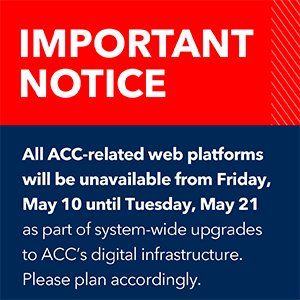What Factors Influence Interest in Advanced Heart Failure/Transplant Cardiology Fellowship?
A strong interest in cardiac critical care and cardiogenic shock as well as patients with greater acuity were among the factors found to be of greater importance to fellows in training (FITs) interested in advanced heart failure/transplant cardiology (AHFTC) as a subspecialty, according to a survey published Oct. 8 in JACC: Heart Failure.
In light of the continuing vacancy rate of 38% for AHFTC fellows for the past four years, Olivia Gilbert, MD, Msc, FACC, et al., conducted a 44-item survey to explore differences between individuals interested in an AHFTC career (AHFTC respondents) and individuals who are not (non-AHFTC respondents). The survey was distributed anonymously through the Research Electronic Data Capture to cardiology trainees through the ACC FIT Listserv from January 27, 2023, to March 9, 2023. Of the 5,079 individuals in the ACC FIT Listserv, there were 419 eligible respondents, for an 8% response rate; no significant nonresponse bias was found.
A total of 78 (18.6%) were AHFTC respondents and 341 (81.4%) were non-AHFTC respondents. Their average age was 32 years, 64% were men, 45% were White, 84% had an allopathic medical degree and 89% were in general cardiology training.
The results found that among respondents interested in AHFTC, more were women compared with non-AFHTC respondents (45.5% vs. 32.1%). Regarding clinical interests, both groups expressed strong interest (a rating ≥4) in cardiac critical care and cardiogenic shock, but this interest was greater among AHFTC respondents (p<0.001 for both). In terms of patient interactions, while patient acuity/complexity was highest in both groups, AHFTC respondents were more likely to rate this strongly, and they were also more likely to give a rating ≥4 for the importance of longitudinal relationships with patients and multidisciplinary approach.
Looking at career characteristics, positive role models were the highest rated incentive for the majority of both groups (87.2% of AHFTC vs. 83.9% of non-AHFTC respondents). Compared with non-AHFTC respondents, AHFTC respondents more frequently gave a strong (≥4) rating to research and administrative interests and fewer gave a strong rating to work schedule, compensation and geographic flexibility.
“These results offer actionable datapoints for opportunities to potentially increase interest in AHFTC training,” write the authors. They note the robust interest in cardiac critical care and cardiogenic shock “suggests a potential gateway,” and that more standardized involvement of AHFTC cardiologists “would have the potential to engage learners who might otherwise be swayed to other subspecialities.” Addressing work-life balance including geographic flexibility, compensation and work schedule may also help improve interest.
Clinical Topics: Heart Failure and Cardiomyopathies, Acute Heart Failure
Keywords: Shock, Cardiogenic, Heart Failure, Cardiology
< Back to Listings
